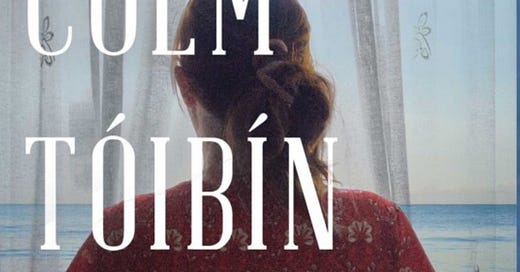Books: “Long Island” by Colm Toibin
When two roads diverge in a wood, as Frost once wrote, it is time to make a decision. Same applies IRL. Especially if that decision could spell all the difference in the world.
As “Long Island,” Colm Toibin’s sequel to his 2009 novel “Brooklyn” opens, our Irish-born heroine Eilis has reached a critical juncture: she has just been informed that Tony, her Italian-American husband, has been canoodling with another woman and gotten her pregnant. The woman’s father has threatened to leave the baby on Tony and Eilis’ doorstep.
Eilis, infuriated, promptly announces to Tony and his close-knit Italian family on Long Island that under no condition will Tony’s baby live in her house. While she lets them stew over that decision, she also announces she is taking a trip back to her village in Ireland to celebrate her mother’s 80th birthday.
When she arrives in Enniscorthy in County Wexford, Eilis finds nothing much has changed since she left 20 years earlier in the 1950s, and that the villagers are as small-minded and nosy as ever.
Jim Sheridan, the quiet local pub owner whom she “had a line with” (Irish for “had a romance with”) has never married but over the years has become resigned to marrying Nancy, a widow and the owner of the local chip shop (and Eilis’ best friend). Eilis’ unexpected return rekindles some flames in Jim, and Eilis wonders if she may be feeling something again too.
Toibin’s masterful plotting keeps you guessing as to what will happen until the last moment. But along the way you find some wonderful observations about how some people stay the same, how other people change—and how life changes them. As Toibin writes: “When Nancy looks at her old friend, she thinks: ‘In the years when she knew Eilis, she thought, and saw her every day, there was nothing special about her. Now she stood out. She seemed like a different person. Something had happened to her in America, Nancy concluded. She wondered what it was.’”
Every time a new piece in the New Yorker or a novel by Toibin appears (see also “The Magician,” a semi-autobiographical novel about Thomas Mann) it’s a cause for celebration. “Long Island” is no different. The prose in this romantic triangle is as simple and understated as Hemingway’s, and is as emotionally wrenching as “Madame Bovary.” (But far wittier, of course!) When a copy crosses your path at the library or independent bookstore, make the right decision and grab a copy. Slainte!
Like this review? Follow me at “What Does Aug Think?” at acsntn.substack.com. Thank you!



